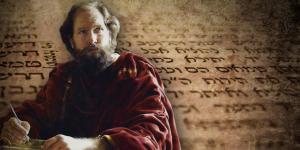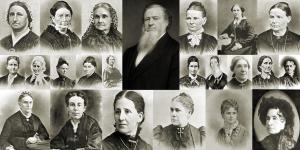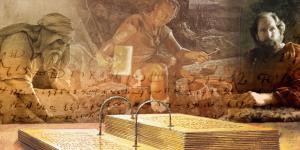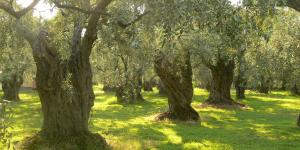You are here
Book of Mormon Central is in the process of migrating to our new Scripture Central website.
We ask for your patience during this transition. Over the coming weeks, all pages of bookofmormoncentral.org will be redirected to their corresponding page on scripturecentral.org, resulting in minimal disruption.
Gospel Doctrine Lesson #12: Seek Ye for the Kingdom of God

Scripture Block
Jacob 1-4
Jacob’s Sermon at the Temple exhorts his people to beware of pride and immorality. He teaches them to recognize the hand of the Lord in their wealth and shames them for persecuting the poor. Having abundance is an opportunity to share with others who have less. Jacob condemns unauthorized plural marriage and sexual activity outside of marriage. He encourages his people to look unto God for consolation.
Lesson Manual
KnoWhys
Articles
Halverson, Taylor. "Jacob 1-4: Seek the Kingdom of God." Interpreter Resources for Students and Teachers. March 5, 2016.
Jacob Magnifies his Calling from the Lord
"Jacob: Prophet, Theologian, Historian,"(link is external) from The Book of Mormon: Jacob through Words of Mormon, To Learn with Joy(link is external)
There have been few people in history who have possessed the combination of spirituality, intellectual capacity, judgment, literary ability, parentage, faith, and seership that Jacob did. He exhibited an inherent desire for righteousness. He was a plain-spoken man, but used very descriptive language. With all these natural endowments, what an opportunity and advantage it was for him to have Lehi as a father and Nephi as an older brother to get him started right.
Jacob 1
"Seven Tribes: An Aspect of Lehi's Legacy,"(link is external) by John L. Sorenson, from Reexploring the Book of Mormon(link is external)
The descendants of Lehi’s party consistently divided themselves into seven tribes. Three times in the Book of Mormon these seven are mentioned, each time in the rigid order of “Nephites, Jacobites, Josephites, Zoramites, Lamanites, Lemuelites, and Ishmaelites” (Jacob 1:13; 4 Nephi 1:38; Mormon 1:8). Significantly, these references come from the earliest as well as the latest periods of Nephite history, indicating the importance and persistence of kinship as a basic element in this society. Now it has been discovered that the origin of this stable societal structure can be traced back to the words of Lehi himself. This article discusses the division of tribes found in Jacob, and what it means for our study of the Book of Mormon.
Jacob 2
Chart 9-11: "Repentance and Obtaining Forgiveness," from Charting the New Testament
Jacob's impassioned temple speech in Jacob 2-3 calls the people in the city of Nephi to repentance. Correcting one's course and obtaining forgiveness are complicated processes; each case is highly individual. While certain basic requirements apply to all people, specific steps may need to be taken depending on the situation, and in no case should any important steps be somehow overlooked. The Book of Mormon is a handbook for repentance. This chart details 16 points of repentance that summarize key ideas from many scriptural passages. This list encourages everyone to expand their contemplation of elements in the repentance process.
"We Did Magnify Our Office unto the Lord,"(link is external) by Richard O. Cowan, from The Book of Mormon: Jacob through Words of Mormon, To Learn with Joy(link is external)
Jacob especially set the example of teaching the gospel “with all diligence.” In his teachings Jacob emphasized doctrines of greatest importance. In one great sermon, recorded in 2 Nephi 6–10, he taught the people concerning their destiny as part of the house of Israel and emphasized the great blessings made possible through the Savior’s atonement. He also plainly taught important practical facets of gospel living. He advocated the proper use of wealth, denounced immorality, and encouraged setting a good example (Jacob 2–3). Like his older brother Nephi, Jacob “likened” (applied) the scriptures to his listeners (1 Nephi 19:23).
"Wealth, Attitudes Towards,"(link is external) by R. Thayne Robson, from To All the World(link is external)
In Jacob 2 we learn that before riches, we should seek after the kingdom of God. This article discusses what the scriptures teach about monetary gain, and general LDS attitudes towards wealth.
"Holiness to the Lord: Biblical Temple Imagery in the Sermons of Jacob the Priest,"(link is external) by David Bokovoy, Youtube Video
Towards the beginning of the Nephite record, Nephi informs his readers that he built a temple "after the manner of the temple of Solomon" (2 Nephi 5:16(link is external)). Years later, the righteous King Benjamin gathered together his people at the temple on the occasion of his final sermon (Mosiah 2:6); similarly, when in fulfillment of prophetic expectation, the resurrected Christ visited the Nephites, the Book of Mormon reports that he did so at the temple in Bountiful (3 Nephi 11:1). Hence, notwithstanding the lack of details explicating the nature of Nephite temple rituals, clearly these sacred centers fulfilled an important religious role in Nephite society. While the Book of Mormon itself contains very few details on the nature of Nephite temple worship, when its sermons are read through the lens of ancient Israelite temple motifs, many of these discourses can be shown to rely upon biblical temple themes as part of their conceptual background. This observation proves especially true in the teachings of the Book of Mormon prophet Jacob, a man consecrated to fulfill the role of a priest.
Jacob 4
"Antenantiosis in the Book of Mormon,"(link is external) by Gail Call, from Reexploring the Book of Mormon(link is external)
Gail Call discusses a particular ancient literary device found in Jacob 4:8. From this literary device, we can put greater emphasis on how we treat the revelations of God.
"Jacob's Connections to First Temple Traditions,"(link is external) by Kevin C. Christensen
In a brief essay, Christensen suggests that just as Jacob prophesied, the Jews would miss the mark and confuse the plain and precious parts of the Gospel. Christensen proposes that this could be the case because traces of pre-exilic religion are found among the Nephites, while the more Deuteronomistic religion is absent from Nephite religion.
"Literary Reflections of Jacob and His Descendants,"(link is external) by John S. Tanner, from The Book of Mormon: Jacob Through Words of Mormon, To Learn With Joy(link is external)
Tanner deals not only with the writings of Jacob in this piece, but also that of his descendants. Tanner takes a look at the often overlooked authors of the Book of Mormon, namely Jacob and his immediate descendants, and analyzes their treatment of the Book of Mormon text. The impact they left on the Book of Mormon is unmistakable and profound, yet often unappreciated.
"Pride and Riches,"(link is external) by Chauncey C. Riddle, from The Book of Mormon: Jacob Through Words of Mormon, To Learn With Joy(link is external)
One of the most memorable and striking passages of the Book of Mormon is Jacob's instructions to his people on the subjects of pride and riches. The purpose of this paper is to examine the detail of this message and to apply it to our own day. It proceeds by giving a verse by verse commentary on the short passage on this subject found in Jacob 2:12-21, and then draw some relevant conclusions for our own time.
"Jacob, Son of Lehi,"(link is external) by John S. Tanner, from The Encyclopedia of Mormonism(link is external)
A biographical entry on Jacob, a prominent Book of Mormon prophet who lived during a formative time of Nephite history.




